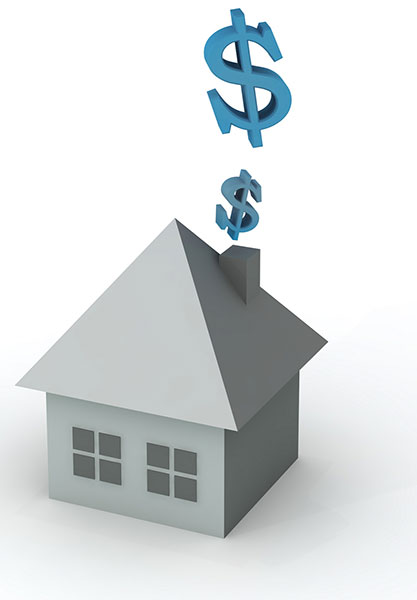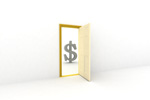Intro to "Estimate your Home Value Appreciation and the Profits from its Future Sale"
Try the calculator Estimate your Home Value Appreciation and the Profits from its Future Sale >
Calculate your home appreciation and project your net value
 You can evaluate your future home equity by using an appreciation rate on your property's value, and comparing its final value with the future mortgage balance that will be left to be paid at the time. This approach will help you project the net value of your real estate asset. After finding the amount of equity, you can then plan to use it as cash down for a new home, an investment for retirement or other, or as a guarantee on a future loan.
You can evaluate your future home equity by using an appreciation rate on your property's value, and comparing its final value with the future mortgage balance that will be left to be paid at the time. This approach will help you project the net value of your real estate asset. After finding the amount of equity, you can then plan to use it as cash down for a new home, an investment for retirement or other, or as a guarantee on a future loan.
Adding value to your home with renovations
The purchase of a property is often accompanied with renovations. Renovations can add value to your property if the expenses are towards improvements, and not towards cost of repairs. There is a big difference between the two expenses; the cost of improvements are a capital expense, while the cost of repairs are maintenance expenses which have little impact on the property's value. For example, installing new windows vs. cleaning the windows; the first one is a capital cost that increases your property's value, while cleaning the windows is just maintenance.
In theory, the home value increases by the same amount as the cost of improvements. For example, a residential property purchased at $300,000.00 with new renovations of $50,000.00 should, in theory, see its value increased to $350,000.00. However, it is not always the case. The value can be lower or higher than $350,000.00, and many factors will influence the price. It is speculated that a house could actually be worth considerably more than its cost of renovations, explaining the popularity of the house flipping trend.
When you make such a projection, you have to realize that the equity doesn't represent 100% of the amount you will cash in. Selling costs such as realtor fees, publicity and mortgage closing costs (such as the penalty charged when breaking a mortgage) can eat up your profit.
Expenses related to purchasing and owning a property
You also need to consider all the expenses related to purchasing and owning a property as they indicate how much it will cost you to build your home equity.
To enumerate them, when you purchase a property there are other disbursements on top of the cash down and mortgage payments (capital and interest). When you buy a property you will also need to pay the transfer tax, house inspection, and notary fees. Once the act of sale is signed at the notary and you officially become owner, expenses will include renovations (if need be), property taxes (municipal and school), condo fees (if you own a condo), insurance, maintenance, and other unexpected expenses.
When doing a projection over many years, it is necessary to include an inflation rate for expenses (other than the mortgage payments) because the fees will increase year after year.
What the calculator is saying...
This calculator will help you evaluate all the necessary expenses you need in order to build your net value. By subtracting the total expenses from the sales net profit, you obtain the net profit or loss of your real estate purchase. A profit of more than 0 indicates that the house appreciation covered all the costs of living, so you were able to "live for free."
You can also obtain the rate of return on your investment. The investment would be the expenses you put in the property, and the return would be the net profit (sale price minus expenses), annualized over a number of years. However, if this is your home, you shouldn't compare your results with what you could get on the exchange market. Why? Because if you would invest in the stock market instead of in your own property, you would likely still need to pay a rent for a place to live in. In this case, it would be interesting to compare the difference between buying a home, or renting and saving. This calculator is a great tool to evaluate if purchasing a house is a good investment for you.
Try the calculator Estimate your Home Value Appreciation and the Profits from its Future Sale >




